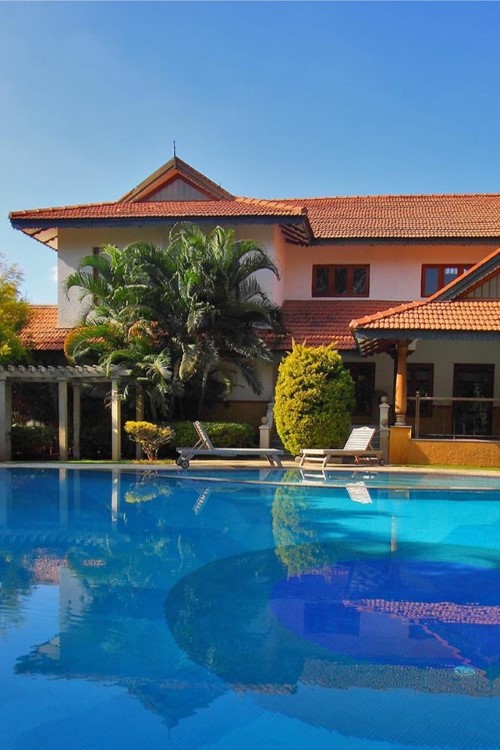FAQs
1. Who is a Non-resident Indian (NRI)?
A Non-Resident Indian (NRI) is an individual who is an Indian Citizen but has migrated to another country permanently or temporarily for the purpose of Employment, Education etc. Other terms commonly used for an NRI are Overseas Indian, Expatriate or Indian Expatriate.
2. Who is a Person of Indian Origin (PIO)?
Any person who was born an Indian Citizen, but over time has chosen the citizenship of another country is considered a Person of Indian Origin (PIO).
3. Who is OCI?
Any person of full age and capacity:
Who is a citizen of another country, but was a citizen of India at the time of, or at any time after, the commencement of the constitution, or
Who is a citizen of another country, but was eligible to become a citizen of India at the time of the commencement of the constitution, or
Who is a citizen of another country, but belongs to a territory that became part of India after the 15th of August, 1947.
Who is a child of such a citizen, or
A person, who is a minor child of a person mentioned in clause (1)
Provided that no person, who is or had been a citizen of Pakistan, Bangladesh shall be eligible for registration as an Overseas Citizen of India.
4. What are the various facilities available to NRI’s / OCBS?
NRIs/OCB’s are granted the following facilities:
- Maintenance of bank accounts in India
- Investments in securities/shares of, and deposits with, Indian firms/companies
- Investments in immovable properties in India
5. Who can purchase immovable property in India?
Under the general permission granted by RBI, the following categories can freely purchase immovable property in India:
- Non-Resident Indian (NRI)- who is a citizen of India residing outside India
- Person of Indian Origin (PIO)- who is an individual (not being a citizen of Pakistan or Bangladesh or Sri Lanka or Afghanistan or China or Iran or Nepal or Bhutan), who
◊At any time, held Indian passport or
◊Whose father or grandfather was a citizen of India by virtue of the Constitution of India or the Citizenship Act, 1955 (57 of 1955).
The general permission, however, covers only purchase of residential and commercial property and not for the purchase of agricultural land/plantation property/farmhouse in India. OCIs can purchase immovable property in India except agricultural land/plantation property/farmhouse.
6. Can an NRI / PIO acquire agricultural land/plantation property/farmhouse in India?
- Since general permission is not available to NRI / PIO to acquire agricultural land/plantation property/farmhouse in India, such proposals will require specific approval from the Reserve Bank and the proposals are considered in consultation with the Government of India.
7. Can NRIs acquire commercial property in India?
- Yes, under the general permission granted by the Reserve Bank, property other than agricultural land/farm house/plantation property can be acquired by NRIs provided the purchase consideration is met either out of inward remittances in foreign exchange through normal banking channels or out of funds from the purchaser’s NRE/FCNR accounts maintained with banks in India and a declaration is submitted to the Central Office of Reserve Bank in form IPI 7 within a period of 90 days from the date of purchase of the property/final payment of purchase consideration.
8. Which properties are NRIs / PIOs not allowed to buy in India?
- An NRI/PIO cannot usually buy agricultural land/plantation property/farm houses in India. Proposals to buy such a land have to be specifically approved by RBI, in consultation with the Government of India. The only way they can acquire an agricultural land is by inheritance.
9. Are Non-Resident Indians (NRIs & Foreign Citizen of Indian origin (PIOs) allowed to acquire or dispose immovable property in India?
- Yes! The Reserve Bank of India has clearly granted permission to all Non Resident Indian’s (NRIs) & Foreign Citizens of Indian origin (PIOs) to acquire & dispose immovable property in India, be it Residential or Commercial Property. However, the RBI has a restriction on the purchase of Agricultural Land/Plantation Property or Farmhouses in India
10. Do you require the permission of the RBI to transfer immovable property in India?
- An NRI or PIO can purchase a property either through an inward remittance in foreign exchange through normal banking channels or through the funds available in the NRE/NRO/FCNR accounts maintained in India by the Investor.
11. Can sale proceeds of immovable property be remitted out of India?
Yes! The sale proceeds of immovable property can be remitted out of India to the home country of the NRI or PIO, up to the maximum limit of the consideration amount originally remitted from abroad to purchase the property. However, the property has to be sold after a period of three years, from the date of the final purchase deed or from the date of payment of the final instalment of consideration amount, whichever is later.
Additionally, the following points also need to be adhered to in this respect:
- The immovable property was acquired by the seller in accordance with the provisions of the Exchange Control Rules/Regulations/Laws in force at the time of acquisition, or the provisions of the Regulations framed under the Foreign Exchange Management Act, 1999;
- The amount to be repatriated does not exceed:
◊the amount paid for acquisition of the immovable property in foreign exchange received through normal banking channels or out of funds held in foreign currency non-resident account(s) or
◊the foreign currency equivalent, as on the date of payment, of the amount paid where such payment was made from the funds held in non-resident external account(s) for acquisition of the property; and
- Finally, application for the purpose of repatriation is required to be made to the Central Office of Reserve Bank within 90 days of the sales of property in Form IPI 8.
12. Do NRIs / PIOs / OCIs have to file returns in India for their property rental income and Capital Gains Tax?
- The Government of India has granted general permission to NRI / PIO / OCI to buy property in India and they do not have to pay any taxes even while acquiring the property in India. However, taxes have to be paid if they are selling this property. Rental income earned is taxable in India, and they will have to obtain a PAN and file a return of the income if they have rented this property. On sale of the property, the profit on sale shall be subject to capital gains. If they have held the property for less than or equal to 3 years after taking actual possession then the gains would be short term capital gains, which are to be included in their total income and will be taxed in the normal bracket. However, if the property has been held for more than 3 years, then the resulting gain would be labeled as long term capital gains subject to 20% tax and some additional levy (cess)
13. What is the Tax treatment for income generated from property selling or renting for NRI/PIO/OCI?
- The mere acquisition of property does not attract income tax. However, any income accruing from the ownership of it, in the form of rent (if it is let out)/annual value of the house (if is not let out and it is not the only residential property owned by that person in India) and/or capital gains (short term or long term) arising on the sale of this house or part thereof is taxable in the hands of the owner.
14. Do NRI’s require permission from the Reserve Bank to acquire immovable property in India?
- No. NRI’s do not require any permission to acquire any immovable property in India other than agricultural / plantation property or a farm house.
15. Can NRI’s/PIO’s rent out the properties (residential/commercial) if not required for immediate use?
- Yes. Reserve Bank has granted general permission for letting out any immovable property in India. The rental income or proceeds of any investment of such income is eligible for repatriation
16. Can NRIs obtain loans for acquisition of a house/flat for residential purpose from financial institutions providing housing finance?
- Reserve Bank has granted general permission to certain financial institutions providing housing finance e.g. HDFC, LIC Housing Finance Ltd., etc., to grant housing loans to NRI’s for acquisition of a house/flat for self-occupation subject to certain conditions. The purpose of loan margin money and the quantum of loan will be at par with those applicable to housing loans to residents. Repayment of loan should be made within a period not exceeding 15 years out of inward remittances or out of funds held in the investor’s NRE/FCNR/NRO Accounts.
17. Are there Any Tax Benefits For Non-Resident Indians buying properties?
- No tax benefits are available for NRI’s unless you file your returns and subsequently become eligible to avail the tax benefits as mentioned under Home Loan FAQ’s
18. Can Indian banks provide financial assistance to NRI and PIO for the purchase of residential or commercial property in India?
As per the general permission granted by RBI, NRIs are allowed to receive financial assistance in the form of housing finance from certain financial institutions namely, HDFC, LIC Housing Finance, IDBI etc.
Housing loans can be availed in rupees.
Even though the criteria regarding the purpose of the loan are at par with those applicable to the resident citizens, the repayment period of the loan should not exceed 15 years.
19. Can NRIs acquire or dispose residential property by way of gift?
- Yes, the Reserve Bank has granted general permission to NRIs to acquire or dispose of NRI India Properties by way of gift from or to a relative who may be an Indian citizen or a person of Indian origin (PIO) whether resident in India or not.
20. How is the sanctioning authority and monitoring authority different in India?
- The Municipal authority in some states is the ultimate monitoring authority whereas for smaller states and rural areas, the town and country planning corporation acts as the monitoring authority.
21. What should an NRI keep in mind while purchasing a property in India?
- While purchasing property in India, the NRI needs to be aware of the market trends of property rates in that area, check all documents related to the property, check for approved layout plan, all clearances from municipality & electricity etc, check the building bye-laws in that area to find out violations if any and confirm whether all the charges and taxes have been duly paid or not
22. Is there any limit on the number of housing properties that may be purchased by an NRI?
- No, there are no limits on the number of residential properties that can be purchased by an NRI but repatriation is allowed only for two such properties.
23. How does Double Taxation Avoidance Agreement work in case of NRIs?
- In case of sale of an immovable property, the Double Tax Avoidance Agreement (DTAA) with most countries state that capital gains will be taxed in the country where the immovable property is situated. Hence, if an NRI owns immovable property in India, then he/she will be subject to pay tax in India on the capital gains which arise on the sale of the property. Similarly, letting of immovable property in India would be taxed in India under most tax treaties.
1 . What is meant by valuation of property?
Typically, if a real estate agent is asked to judge the value of a piece of property, he would do so based on information of recent sales or purchases of similar properties in that area.
2 . How does property valuation help?
Typically, if a real estate agent is asked to judge the value of a piece of property, he would do so based on information of recent sales or purchases of similar properties in that area.
Though this may give a fair idea of the property’s market value, an official property valuation would carry more weight. E.g. if you need to use this piece of property as a security against a loan, the bank’s loan approval process would be faster and smoother if the property is certified by an official evaluator. Many banks now insist on valuation certificates before issuing loans using properties as security. The value thus certified may also have chances of getting a higher amount of loan sanctioned.
Another benefit of official valuation is that it is a useful negotiating tool when selling the property.
Such certification also becomes essential in situations where the correct value of the property has a legal bearing—such as, a will statement, insurance papers, business balance sheets etc.
3 . What is the meaning of a property’s market value? How is its stamp duty decided?
The price that a property can command in the open market is known as its market value. Stamp duty is based on the market value or the agreement value of the property, whichever is greater.
4 . What does the term ‘Leasehold Property’ and ‘Freehold Property’ mean?
- When a piece of property is given or ‘leased’ to an individual (known as the ‘Lessee’) for a stipulated period of time, by the owner of the property (known as the ‘Lessor’), the property is referred to as Leasehold Property. A certain amount is fixed by the Lessor to be paid as lease premium and annual lease. The land ownership rights remain with the Lessor. Transfer of property requires prior permission.
- When ownership rights for a piece of property are given to the purchaser for a price, that property is referred to as Freehold Property. Unlike in the case of leasehold property, no annual lease charges need to be paid and the freehold property can be registered and / or transferred in part(s).
5 . What documents and formalities are required while buying property?
The documentation required while purchasing a property includes a blue print of the building plan/layout, certificate of commencement, certificate of completion, permission of non-agricultural use of land in case the land is originally an agricultural land. A 7/12 extract in case of land property [specific to states like Maharashtra] and a NOC from the builder are also needed. In case of resale, previous sale deeds are a must. All these documents should be thoroughly verified by a competent advocate.
6 . Are there any benefits in converting a leasehold property to a freehold one?
There are several benefits: if you convert the property to a freehold property, you become a full-fledged owner by getting the sale deed and having it registered. A freehold property has better marketability and can be sold, mortgaged or kept for standing security, which cannot be done with leasehold property.
- Are there any income tax considerations while transferring newly acquired property?
If the transfer takes place within three years of purchase, the income tax exemption under Section 54F of the Income Tax Act does not hold good.
- What constitutes conclusion of sale of a property?
An agreement of sale, coupled with actual possession of the property would be considered as a conclusion of the sale. Usually, the entire amount is paid at the time of handing over possession.
- How many properties can I own?
You can own as many properties as you want.
7 . How can I qualify for exemptions on the Capital Gains Tax?
There are a few exemptions available for long term Capital Gains, if you:
- Buy or construct a new house: If you build a new house or buy one from the money you receive from selling a property, you are exempted from paying the tax on Capital Gains. However, the new purchase should be done either one year before or within two years of sale and the construction should be completed within three years from the date of transfer. The new property bought or constructed should not be sold within three years from the date of its purchase or date of completion of construction.
- Capital Gain Account Scheme- Through the Capital Gain Account Scheme (CGAS), you can save the received money in designated banks. CGAS helps you in buying time to look for suitable investments as it serves to inform the Income Tax department that you plan to invest the money received; but at a later date.
- Invest in Bonds- You can also invest in financial assets or bonds to save tax. Such bonds are issued by the Rural Electrification Corporation and the National Highway Authority of India and should be bought within six months of transferring the property. You can invest a maximum of Rs 50 lakhs through these bonds.
8 . What is the difference between long-term Capital Gains and short-term Capital Gains?
If the house is held for less than three years prior to its sale, it is termed as a short-term capital asset and any gain arising from the sale is treated as a short-term Capital Gain. There are no tax exemptions for short-term Capital Gains and one needs to pay it according to the applicable tax slab. However, if the property is sold after holding it for more than three years, it is treated as a long-term capital asset and the gain arising from it is called the long-term Capital Gain. Such gains attract a flat exemption rate of 20%.
9 . What is Stamp Duty? Who is liable to pay Stamp Duty? Do I get tax benefits on Stamp Duty?
Stamp Duty is the tax paid for the legal recognition of property. It is paid by the home buyers. You can claim tax incentives of up to Rs 1.5 lakh on stamp duty and registration charges on a new property purchase or construction of a house. However, these benefits are available for only one self-occupied property.
10 . Is it mandatory to register documents for the sale of property?
- Yes. You can get it done at the sub-registrar’s office of the concerned district.
11 . Things you should check at the time of signing the agreement?
Before signing the purchase agreement, the buyer should check the details like base price mentioned, additional charges like PLC, club membership, carpet area along with facilities, taxes applicable, payment mode, occupation certificate, building insurance, schedule of possession and penalty clause in case of project delay.
12 . What should a consumer keep in mind while purchasing a house?
There are many factors to be considered at the time of property purchase like the locality or the area of the home, whether all the basic and civic utilities are available, transport facilities, construction quality, the carpet, built-up and super built-up area of the flat, provisions of basic features like water and power supply, and most importantly, reputation of the developer.
13 . What is the difference between power of attorney and registry?
Registry is the database which stores all the important documents etc. Whereas, Power of Attorney refers to the right/authorization given by the owner to someone whom he trusts and to whom he assigns the power and rights to deal with the property under inevitable conditions.
14 . What exactly do we mean by a Free Hold flat? What are the advantages and disadvantages, if any?
A Freehold Flat is the one which has a whole sole owner of the property with the ownership being complete and unconditional as per the regulations of the law of land and does not have any kind of involvement of any lessor/lessee.
15 . What is the difference between built up area, super built up area, and carpet area?
The area of an apartment or building, not inclusive of the area of the walls is known as carpet area. This is the area that is actually used and in which a carpet can be laid. When the area of the walls including the balcony is calculated along with the carpet area, it is known as built-up area. The built-up area along with the area under common spaces like lobby, lifts, stairs, garden and swimming pool is called super built-up area
16 . Who is the appropriate authority for knowing the market value of the property?
The Sub-Registrar of the area, in whose jurisdiction the property is located, is the appropriate authority for knowing the market value of the property.
17 . What are the risks associated in buying a flat on Power Of Attorney (POA) basis?
- Purchasing a flat on a POA basis is not permitted under the law of the land.
18.Is a POA revocable?
- Yes, a POA can be either revocable or irrevocable, depending on what sort of a POA one has made.
19.How to convert a POA flat into a Free Hold one?
- PO cannot be converted into anything.
Leasehold properties of DDA in Delhi can be converted to freehold, as per provisions.
1. Why invest in Chaithanya? Chaithanya is a highly reputable real estate firm with an excellent track record. We have crafted over 2.3 million square feet of home spaces. Our commitment to uncompromising quality, timely execution, and nurturing customer relationships has made us the exclusive developer.
2. What is unique about Chaithanya’s approach to real estate development? At Chaithanya, we strongly believe in identifying our customers’ needs and innovating based on the “Sciences of Life”. We design and engineer our products to achieve excellence, ensuring that we create real assets for our investors and clients.
3. How does Chaithanya incorporate community and wellness into its projects? Chaithanya places significant emphasis on community and active living. All our projects are designed with amenities and spaces that promote wellness and foster a strong sense of community among residents.
4. How does Chaithanya contribute to sustainability? Sustainability is at the core of our business model. We strive to create developments that are environmentally friendly, ensuring we contribute positively to the planet while delivering value to our customers.
5. What awards has Chaithanya won? Chaithanya has been the proud recipient of multiple national and international awards, reflecting our commitment to quality, innovation, and customer satisfaction.
6. What is the relationship between Chaithanya and its customers like? We pride ourselves on nurturing strong relationships with our customers, and this is evident in our high referral rate. Trust and transparency are paramount in all our interactions.
7. Is investing in Chaithanya a good long-term decision? Yes, investing in Chaithanya is a sound long-term decision. As a company, we’re committed to creating real assets that appreciate over time, ensuring our investors see significant returns on their investment.














